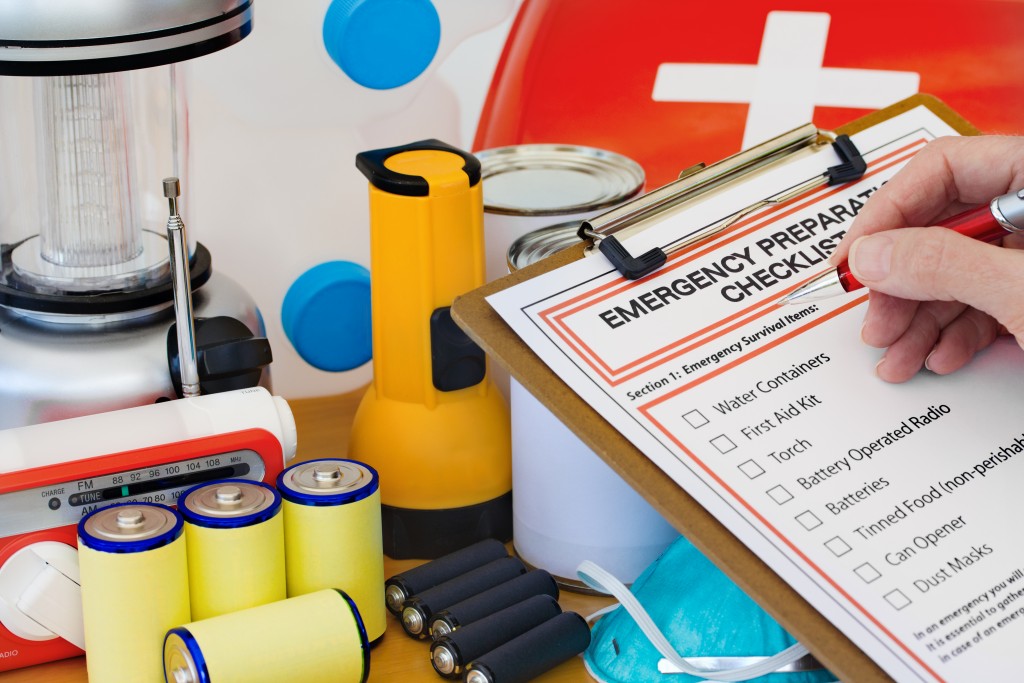If 2020 has taught us anything, it’s that anything could happen. We could lose our homes, lives, jobs, and everything we have—in the blink of an eye. That may sound ominous, but it’s the reality of the world we live in, and there’s nothing wrong with acknowledging that.
One way to protect yourself from anxiety is by making sure that you and your family are prepared for what’s to come—research has demonstrated a positive correlation between our mental health and disaster preparedness. We may not control everything, but some things are still within our power, like being prepared for blackouts and being ready to evacuate anytime there’s a call for it. Here are some pointers to prepare you and your family for whatever disaster that may befall your town.
Prepare your home for power outages.
Major power outages can happen anytime. Brownouts and blackouts can happen during storms and typhoons, during a heavy snowfall, and when infrastructure fails. A recent study found that the U.S. has more power outages than other developed countries in the world because many of our grids are rundown and outdated. Here are some pointers to prepare your home for a power outage:
- Install battery-powered emergency LED lights in every room and floor.
- Invest in a modern generator that’s capable of powering your house while you wait out the outage.
- Buy heavy-duty portable power bank chargers for every member of the family.
- Install a fireplace, or invest in a heating device that’s safe for indoor use.
- Make your home as energy-efficient as possible by insulating it properly. Find eco-friendly ways to keep the heat in and the cold out.
- Buy thermal blankets and coats for the family.
- Keep battery-powered and rechargeable flashlights in every room of the house.
Make sure that every member of the family has a “go” bag.
 Nowadays, it would be extremely beneficial for everyone—regardless of where they live—to pack a “go” bag. A “go” bag is self-explanatory; it’s a durable, heavy-duty bag that you can bring with you if you need to leave or evacuate in a hurry. Here are some items you need to store in that bag:
Nowadays, it would be extremely beneficial for everyone—regardless of where they live—to pack a “go” bag. A “go” bag is self-explanatory; it’s a durable, heavy-duty bag that you can bring with you if you need to leave or evacuate in a hurry. Here are some items you need to store in that bag:
- Cash
- Thermal blankets
- Battery-operated radio
- Cash
- Extra keys to your house and car
- Clothes, underwear, and socks for three to five days
- Emergency blanket
- Extra batteries for the radios
- First-aid kit
- Flashlight
- Water-purifying tablets
- Waterproof bags
- Sealed plastic bags for important documents like passports
- Energy-boosting snacks
- Swiss army knife
- Medications
- Personal hygiene items
- Lighter and matches
- Spare chargers for and portable power banks
You may think that it would never happen to you because you don’t live in an area that’s prone to wildfires, floods, typhoons, or any other natural disasters, but it doesn’t matter, especially as climate change worsens year by year. Wherever you are, you and your family would benefit significantly from having go bags prepared.
Maintain your vehicle and other modes of transportation.
In the same way, your vehicle needs to be maintained regularly to be ready anytime you need to drive long distances. Constantly observe how your car performs, and consult with your mechanic about how it can improve. If you live near the ocean or a river, or just somewhere beside a huge body of water, consider investing in a boat that can fit you and your family. Research everything there is to know about different modes of transportation, as you never know what you will need to end up driving in case of an emergency. Keep a complete parts catalog handy so that you have access to every part you may need in case you need to have anything replaced.
Check your home’s structural integrity.
Make a habit of checking your home’s structural integrity. Check every wall in the exteriors for hairline cracks and other signs of damage. Inspect the roof for possible vulnerabilities and leaks to mitigate the damage in a harsh snowfall or a strong typhoon. Get ahead of the problems before they even arise. Consult with a home inspector to know how you can improve your home’s capacity to withstand storms, earthquakes, and other natural calamities.
Talk to Your Family
Teach them the drop, cover, hold tip for surviving an earthquake. Prepare them for every possibility that may come without arousing fear in them. It’s a fine line, but it’s one that we need to walk if we’re going to survive. Let them know that you are all in this together, and as long as you do the necessary preparations, you always have a fighting chance against disasters.

